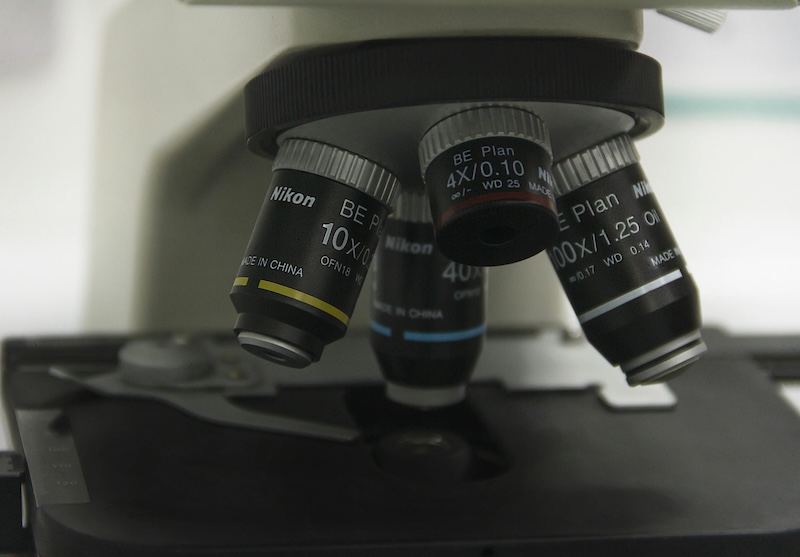
Fruit Flies and Cancer Research
Fruit Flies and Cancer Research
Don't underestimate the fruit fly. While it may be a nuisance around fruit it is the perfect model to study cancer and many other diseases. Scientists have been studying the fruit fly, Drosophilamelanogaster, for over a century. The Drosophila model has been instrumental in providing fundamental insights into our understanding of genetics and animal development.
Now, the Louisiana Cancer Research Center is home to two noted Drosophila researchers from member institution Tulane University.
Jun-yuan Ji, PhD, moved to New Orleans in early 2021. He was recruited to Tulane University School of Medicine and the Department of Biochemistry and Molecular Biology from Texas A&M University. Wu-Min Deng, PhD joined the same department in late 2019 from Florida State University.

Already they have worked to build upon a network of Drosophila research in Louisiana by teaming up with fellow fruit fly researchers at LSU Health Science and LSU Baton Rouge for collaboration. “Our group is named ‘Fly Bayou.’ It gives us a great opportunity to meet and share data with other fly researchers in Louisiana,” Dr. Deng said.
The LCRC equipped laboratory space in New Orleans for Drs. Wu-Min Deng and Jun-yuan Ji supports their work and paves the way for expansion of Louisiana’s fruit fly research community. “Drosophila has homologs of approximately 77% of known disease-causing genes in humans,” Dr. Ji said. “They are very useful models to study biological processes such as infection, inflammation, neuroscience and cancer in humans.”
Both scientists praised the LCRC as a home for their research. They will regularly rely on the LCRC’s Biospecimen Core Lab to supply tissue samples. “The ability to obtain tissue samples right in the building is a great convenience,” Dr. Deng said.
Dr. Deng's research focuses on fundamental questions in cancer biology and developmental biology and has led to the development of novel concepts such as tissue “tumor hotspots” and “compensatory cellular hypertrophy,” and publications in high-impact journals.
Dr. Ji holds great hope for the potential of the Drosophila model to enhance understanding of several important biological processes such as transcription, cell-cycle regulation, and lipid metabolism, as well as a wide variety of human diseases such as cancer, cardiovascular diseases, obesity, diabetes, neurodegenerative diseases, and neurological disorders. “Drosophila research holds a preeminent place in efforts to discover the pathogenesis and treatment of human diseases,” Dr. Ji said.
The two scientists are in the process of establishing a "Center for Disease Models", with the goal to foster interdisciplinary collaborations among researchers at Tulane, LSU and the greater New Orleans area.




